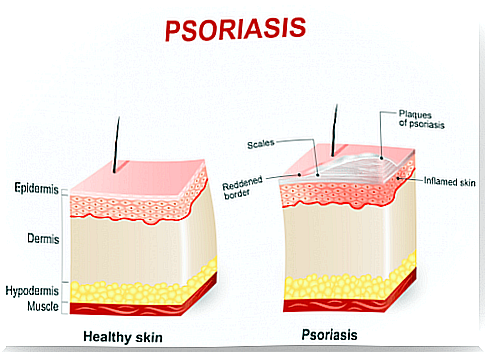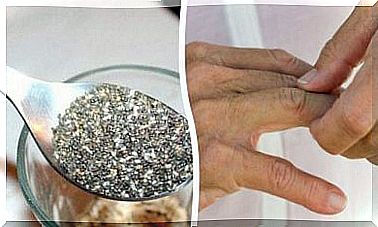Acitretin: Indications And Uses
Acitretin works by inhibiting excessive cell growth and keratinization of the skin. Find out more about the retinoid, its uses and contraindications.

Acitretin is a medicine belonging to the group of retinoids or derivatives of vitamin A. It is used to treat skin problems where the skin has thickened and taken on a scaly appearance.
This medication works by inhibiting excessive cell growth and keratinization of the skin. Keratinization is a process by which skin cells thicken due to the deposition of proteins on them.
What is acitretin used for?

Acitretin is used in the treatment of severe and generalized forms of skin conditions. One of them is psoriasis. This medicine is also used to treat ichthyosis. A skin disorder in which keratin is deposited in cells that turn into corneas, such as nails and hair.
This medication should always be prescribed by a doctor, preferably a dermatologist. This is because dermatologists have more experience in treating systemic retinoids.
What is the dosage?
It is best to take acitretin with food or milk. Regarding the dosage, it will be different for each patient. It is therefore necessary to follow the doctor’s prescriptions.
The usual starting dose for adults and the elderly is 25 mg or 30 mg once a day. Nevertheless, it is possible that after 2-4 weeks the doctor will change the dose depending on the effectiveness and the effect on the patient.
However, the maximum dose is 75 mg per day. In addition, the duration of treatment should not exceed 3 months. If the specialist deems it necessary, it can sometimes be extended.
On the other hand, if you forget to take your daily dose, it should not be compensated for. However, take it as soon as possible, unless there is little time left until the next one. In this case, do not take it. To stop treatment, you must seek medical advice and not make the decision yourself.
Adverse effects of acitretin

Like all medicines, acitretin can cause side effects. Usually they are dose related. The higher the daily dose, the more side effects occur.
Most side effects appear at the start of treatment and are reversible when the dose is changed or stopped.
Among the most common side effects are dryness of the skin, mucous membranes and lips. In addition, other undesirable consequences may also appear. For example :
- Change in hair growth rate and texture
- Inflammation of the lining of the mouth and gums
- Blisters and skin cracks
- Skin and hair color changes
- Vision disturbances: dry eyes, blurred vision, poor night vision. Contact lenses may also not be tolerated.
In other cases, in addition to the dryness of the mucous membranes of the skin and nose, there is skin peeling. The latter can occur in particular on the palms of the hands and the soles of the feet.
A smaller percentage of patients experienced side effects such as nasal bleeding or the appearance of scales as well as thinning of healthy skin, with increased sensitivity.
When long-term treatment with acitretin ends, there may be bone changes like thinning of the bones or reduced bone density, osteoporosis.
What are the contraindications for acitretin?
Acitretin should not be used in the following situations:
- Women who are pregnant, or who may become pregnant during treatment or within 3 years
- Patients with renal, hepatic or coronary insufficiency
- Allergy to acitretin or retinol derivatives
- Patients undergoing treatment with tetracyclines
It is important to know that acitretin is highly teratogenic. In other words, in a pregnant woman treated with this drug, malformations of the fetus can occur. Typical malformations caused by acitretin include:
- Damage to the central nervous system
- Problems in the heart and large blood vessels
- Deformation of the skull, face and skeleton
- Problems in the thymus gland
The proportion of malformations is high. Even though acitretin is only taken for a short period of time during pregnancy. This also happens if the pregnancy occurs within 3 years of the end of treatment.
Conclusion…
Acitretin must be used under the supervision of a doctor, and especially in women. This is because this medicine should not be taken if you are pregnant or plan to become pregnant within the next 3 years. This is a drug that causes serious deformities in the fetus.









